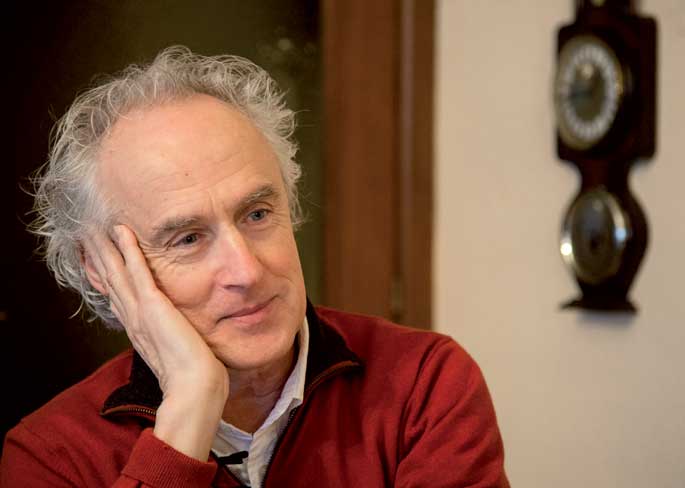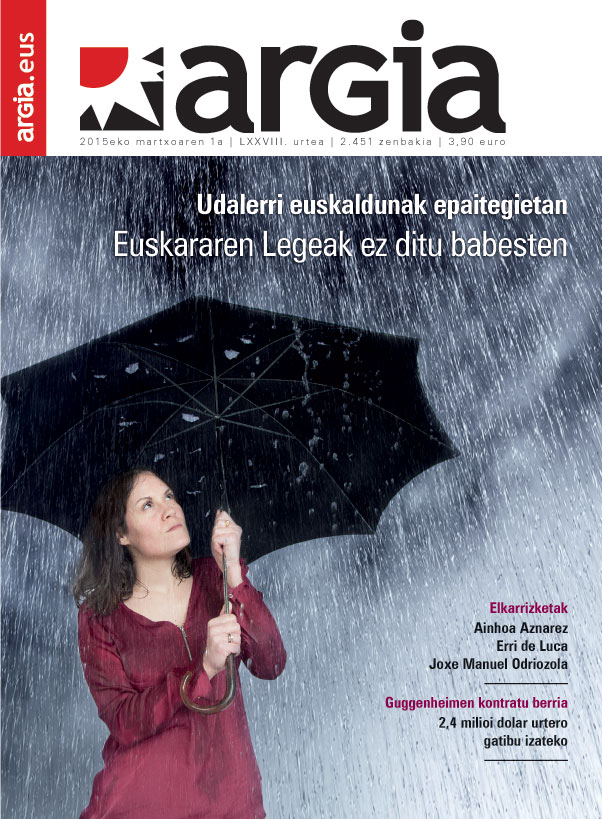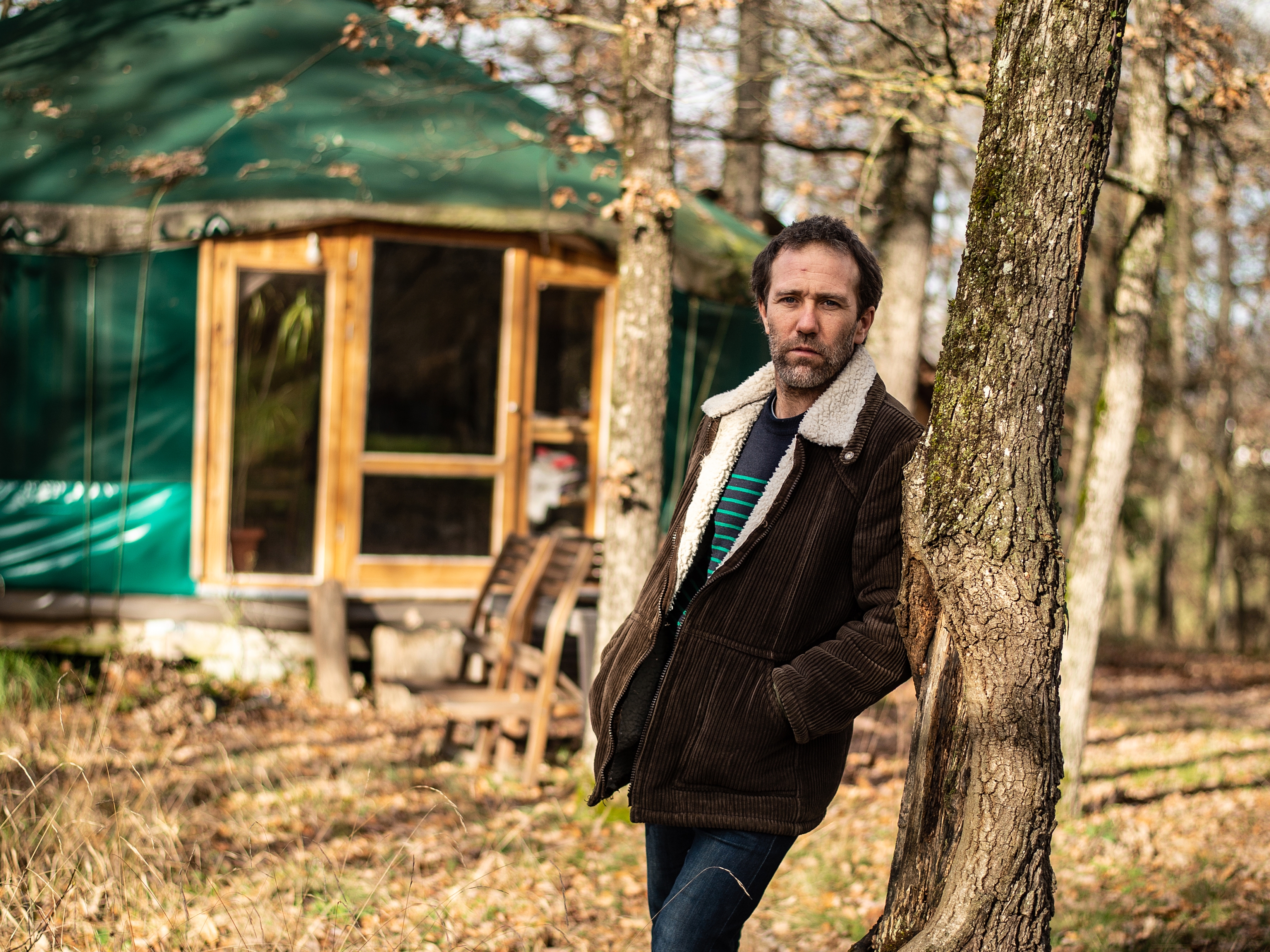"Whoever has the monopoly of violence has his story in hand"
- Altzo, 1948 He has been a professor of Euskera and has been a prolific essayist. Language, nationalism, nation and identity have been the elements that have stood out in their essays. His last work is From the Force Account to the Violence of the Story (Txalaparta, 2014). A subject as complex as exciting.

Why the issue of political violence? Why?
I have been interested in political violence, among other things, in the Marxist texts read. I read Marxism at the time when the violence of the last rebels in Euskal Herria, that of ETA, began. Violence determines the instances of society, social, economic or political-legal factors. I've written the book drawn to that idea, and by writing it, it has taught me a lot about violence.
For example…
I've been able to confirm my intuitions through several thinkers. For example, Johan Galtung refers to three types of violence: structural, direct or explicit, and cultural or symbolic. I've been very interested in the dialectics between them, and since ETA left the guns, beyond violence, violence is turning. This curiosity has been partly satisfied and I have come to some philosophical conclusions. I have worked on violence from the point of view of a critical philosophy, or at least I have tried. In other words, I have seen in depth how violence affects society, our conduct and national relations. These violations cross us and characterize us from top to bottom and from top to bottom. In addition to the texts of the Marxists, other current thinkers have also confirmed some intuitions to me.
You mentioned your philosophical conclusions.
I have come to the conclusion that there are no social or national relations that are not violent. Human relations are overdetermined, both political and economic or legal, and not mechanically, that is, there is founding or innate violence. According to Foucault, “when one nation conquers and occupies another, that never ends”.
By using the word violence, we use force, violence or violence. You have chosen violence.
This is right: because force is considered a neutral concept. Because of the monopoly of the State, force is identified with the violence exercised by the State. This force seems as natural as white snow. If it snows, it needs some white and no one swallows. The modern state appropriated force and used it, and is considered natural or normalized. Let us say that this violence is a category of common sense. Few people think that the violence exercised by the State can be called into question. In dictatorships, in Franco here, European liberalism has questioned it in some way, but in everything else it is legitimate, it is legal, the white snow.
And the other, the opposite?
What insurgents or revolutionaries use, that is, force, that would be black snow, in our case what ETA has done. That is violence and it is identified with terrorism. In other words, it seems that it is not the violence of the State. As Setién [former bishop of Gipuzkoa] has written, force is the power that has been imposed in the elections and the other is not. It seems that choice is not violence. All the connotation of Keria's suffix adheres to counter-violence because it is not legitimate. On the contrary, I find the distinction between force and violence rather arbitrary, because all violence is violent. The force used to maintain justice or injustice, the unjust or just order is violence.
Therefore, the determination of the concept of violence is not so simple.
It's very complex. Violence conditions all societies and all nations, and we, too, people, are subjects built by force. Violence kills her. For example, these days we are seeing violence in Ukraine. We are left with the negative side of death, with suffering. At the same time, behind, there is structural violence, there is a process going on. A strong nation is destroying the territories of the enemy nation and making them its own. This, in itself, is violent, because as the territory collapses, it widens its territory.
In addition to the thoughts of intellectuals, he has also studied media articles and written about reports of people who have suffered violence.
I have been encouraged by these views. The choice of them has not been easy, and in the election there is no special reason. Following the ceasefire of ETA, many texts have been published, especially articles. In this environment, I started compiling the texts. I thought I should be supportive of those persecutors and give them a place. Sometimes I identify with them and others I'm critical. In these 50 years, there are people who share my point of view about what happened, and I've taken the opportunity to justify my opinion, to strengthen myself, but surely most of them are the other way around.
You've walked between black snow and white snow.
Yes, in a way. I believe that the latter offer a restrictive view of violence. They manipulate the concept of force, because they understand that it is only violent that they use the counterweight. That is, violence is considered a simple act, a violence that goes against a national order and system, which is ETA, because counter-violence has caused fatalities. In his view, the concept of violence that has prevailed here is that of violence. I mean, black snow.
You say black snow. But before ETA's, it wasn't that black.
That is true. The counterclockwork of ETA’s first era, known as Basque violence, was not a black snow. Apparently, it was quite white and quite legitimized by the citizenry, and not only in the nationalist world, it was also recognized by the anti-Francoists. That is disdain today. That is to say, if we want to write ETA’s story, that must be taken into account, because it seems that it has only been ETA in recent years. They want us to internalize that, but in the past, ETA's violence had a lot of legitimacy. Even those who had a Spanish identity, not only those who have claimed the Basque identity, did not see such black violence either. Perhaps because the state was dictatorial? However, the dictatorship had many enemies, and in this context violence was considered legitimate. That wasn't violence, then it became violence.
He dedicated the book to “those who have fought for the Basque nation”. However, you are critical of those who have acted within them and of those who have used violence in different passages.
The changes after the transition began to alter the dialectic and the relations between the two violence. Until then state violence was “illegitimate”, then Spain gained another status in Europe through a “fully democratic state of opinion”. Official violence gradually began to legitimize itself and become ETA’s illegitimate violence. ETA’s violence became a coup d’état to start working in the organization. At first, the favorable wind had become the opposite. In this change and in this new situation we must be very critical of the use of armed struggle, because otherwise the State can make good use of its strategy. The Spanish one made good use of ETA strategies. The armed struggle began to perish, among other things, because that social basis that protected it did not see it clear, even though its objectives were legitimate. However, according to Joxe Azurmendi, ETA has been a great movement. It wasn't just an armed organization, it was a popular movement, and that soaked society. It not only splintered with the political actors, it also permeated the cultural and trade union world, for better or for worse. It must also be said that this influence of ETA must be taken into account.
Has ETA’s armed struggle taken the line of the concept of terrorism?
Some people think it is.
Do you believe?
One author I'm talking about in the book asks: “Is a revolution or a political counter-violence possible without fear?” He who does not produce terror. He says that violence is the natural element of terror, even in the best sense and in the most liberating. The example of Mandela is the clearest. In his actions, civilians died. Was yours a terrorist organization? I don't see it clear, others do. Emilio López Adam [Black] sees a kind of terrorist collapse. Etarra Marisol Iparragirre, of EH Bildu, has assured that “we never wanted to pass that line.” He has also said that terrorism is an implicit action against civilian subjects and that they have never acted for that purpose. Not with intent, but in the practice of armed struggle that can happen and has happened to ETA on more than one occasion. Has it been a conscious slippage? I don't think so.
If it serves to win, can violence become white snow?
Edgar Morin says that sometimes, even with bad intent, violence serves if it is to win. In other words, bad media can also have some good consequences. Herbert Marcuse, on the contrary, states that “the revolutionary violence used with the best intention also has fairly opposite consequences”. In other words, despite the commitment to justice, the consequences are not good. The contradictions between means and objectives are great.
“By the force of the story,” says the title of the book. There's some violence in the story.
Of course. Whoever has the monopoly of force has the monopoly of the word, the force of the story is at his fingertips. Through curricula, a given history is socialized, a given history and not another. It's the usual thing: history tells it the winner. It is an equally authentic truth. Now there will be many stories, and everyone will have their truth, their little truth, ours. But do we know how the history of the past 50 years will be told in schools?
So is it pessimistic about the nature of the story of force?
Yes. So far, emphasis has been placed above all on a kind of vision of violence: direct, disturbing violence, which we see through blood images. ETA's direct and disturbing violence is limited to the concept of violence. They also stressed that ETA’s environment has legitimized this violence and highlighted ETA’s symbolic, cultural and ideological world. The one that has prevailed the most is black snow, which is not natural, which is not democratic. However, the white snow, the force imposed by order, the national order, seems to be very natural. They say that our relations with Spain are very natural, that behind there is no violence, no innate, no other. In other words, violence has never been established here, here the Spaniards and the French have a natural and logical preponderance. The story that is imposed is a narrow concept of violence. The rest of the violence, both structural and cultural, are rarely mentioned from time to time.
A story told always in repetition.
Yes, there are winners and losers, or they want to prove it. We were defeated in the Carlist wars, also in the civil war of 1936. The Basques have lost all the wars, in addition to that of Roncesvalles. Well, who knows what it was ... [smiles].
History is not well told.
An occupied people cannot count well. Does an occupied people have ideological and symbolic resources to enable them to have adequate interpretative means? The colonized peoples try to tell their story, but it is not possible. Those who have the monopoly of force, I repeat, have the monopoly of the word. According to Foucault, knowledge and truth are social and historical products. That is not in anyone's hands, that is in the hands of the power monopoly.
What do you think of the story that mainstream media do?
Most of them are reports of the victims' sentiments. I accept the interpretation made by the victims, they have the right to do so at an emotional and sentimental level. But that's part of the story, part of what's happened in this country. In this way, victim support mechanisms and indefinite empathy are prioritized. We must do this, but here the historical contradiction between the two nations is at stake, there are two languages and antagonistic identities, we are the Basques that we do not want to be Spaniards, very few, but we are fortunate.
A dilemma: structural violence and rebel violence should not be valued equally. Revolutionary violence cannot equate itself with institutional violence in justifying its errors.
Yes. Yoyes is the most paradigmatic example of it. If transformative and democratic counter-violence, whether social or national, is in favour of justice or contrary to imposed justice, it must be separated from the violence of the oppressor. The rebel has to be very critical of violence. It should not have the attitude of a soldier or a police officer. The police are going to execute it, they're going to take a turn, the revolutionary has to go down the path of justice.
Former ETA member Jesús Mari Zabarte has recently used the word execution to refer to those of ETA.
Yes, he used it… That can also be understood. Some ETA militants say that “I did not participate in some military actions, but I also feel complicit.” They see theirs as a collective project. They say that ETA’s actions have been common. It wasn't about who did it, the culprit wasn't the one who executed it. Empathy has been moral and ideological. The liberating armed struggle often seeks to liberate its nation, but unfortunately the dominant nation is unworthy of it. Violence is a dangerous medium.
In the opinion of some, the story is more appropriate through fiction. What do you say?
On the level of emotion and aesthetics, fiction is better. For starters, attempts are rigid and sometimes boring. For many readers, it is more attractive to internalize the interpretation of history in a pleasant way, for example, through the novel. Then, is it more or less appropriate? According to the nature of the story. In any case, both fiction and essay have their own limits. In the strength of the essay, too dry information is given and people prefer to go to fiction. Harkaitz Cano’s Twist novel is, among others, a good example of this. However, fictitious interpretations work more in the affective, sentimental and personal level, and not so much in the collective. In other words, the essay shows better the contradictions of the struggle, always in my imagination.
You prefer the test.
Two nations with historical contradictions and two collective identities to explain terminologies. Fiction does not absorb sociological and historical conceptualization. In addition, it doesn't have to appropriate, it has its own techniques to count it in a pleasant and attractive way, but it may lose accuracy. The attempt to reach the core of the problem allows us to arrive better, provided that it is a good attempt. In fact, the essay is a scientific accuracy of history, but also from speculation. But speculation is also allowed within measures. That is, we count small truths both in fiction and in essay. And I want to think that with all those little truths we're making a little bit bigger. For the Basques, I mean, because the Spaniards are doing their own thing. The story is always subjective, the story is not complete, nobody can. There is no objective story because the facts are not spoken on their own.
Macron made his press conference on 12 June to read the elections to Parliament. Above all, it has had the time to repeat that the right end and the left end are both landers exactly the same. Although he has criticised one and the other, he has opened up ideas of charm of the... [+]
I will spare you too many explanations and details, the esteemed reader who looked at this text. The issue is very simple. I'll talk about you, about me, about all of us. I am going to refer to the amazing travellers of this boat that is still floating without direction and ever... [+]
The crisis on the left jumps to Latin America. Until recently, progressive governments could be found on almost the entire map of the region. But things are changing in recent months. The three presidential elections marked a turning point: Daniel Noboa won in Ecuador, Javier... [+]
“And what is the weather she perceives for Thursday?” I asked the feminist militant that she was organizing the A30 strike. “The truth is that lately I’ve had my head in a conflict at school,” he replied with a serious face.
The Vox Solidarity party union called for a... [+]
When analyzing the history of social movements and protest, the most abundant studies are those of the Contemporary Age. Sources are more abundant, conflicts are more abundant, and researchers also share the view of the world of research. That is, as we pass through the sieve of... [+]
French and Spanish leftist parties and movements have a different relationship with the concept of nation and with nationalism. This completely conditions the relationship with the Basque nationalists. But why? The key to the theme lies in the different processes of creation of... [+]
Euskal Herrian "paradigma iraultzaile berria" zabaldu eta garatu nahi duen Kimua ekimen herritarra zenbait herritan aurkezpen bira osatzen ari da. Hala Bedi irratian Kimuako kide batekin hitz egin dute proiektuaren inguruan gehiago jakiteko.























